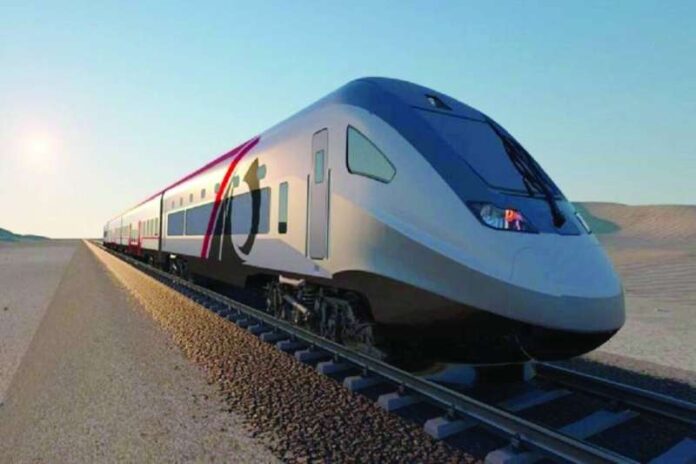The Public Authority for Roads and Land Transport has taken concrete steps regarding the railway project for the Gulf Cooperation Council countries, as the committee studying the tenders for the consulting offices tender submitted its recommendation regarding the global office that won the tender, in preparation for preparing the tender documents and starting their implementation later.
PART Acting Director General, Khaled Dhawi, told Al-Rai that the authority completed last week studying the technical offers for the advisory study tender for the Gulf Railway Project, indicating that the authority had submitted the recommendation to the Central Agency for Public Tenders, to take the decision to award it to the corresponding office.
He explained that the period for implementing the advisory study is 12 months, after which the tender for implementing the project will be issued, which is set for 30 months according to the traditional system of tenders, indicating that “according to the proposed timetable for implementing the part related to Kuwait, it will be completed at the end of 2028.”
Dhawi stated that 10 international consulting offices submitted offers to compete for the tender, and the study committee recommended the bidder that was technically identical and had the lowest price.
He pointed out that the authority had previously completed preparing the conditions for the detailed study and design project, and preparing the tender documents for the railway project, as the consultative tender for the design was launched last January 15.
Dhawi stated that the length of the Gulf route of the railway, which starts from Kuwait in the north, and extends through all the countries of the Gulf Cooperation Council until Muscat in the State of the Sultanate of Oman in the south, passing through Saudi Arabia, Bahrain, Qatar and the Emirates, is about 2,117 kilometers, with the length of the first stage of the part related to Kuwait and extending from the Nuwaiseeb center in the southern border of the State of Kuwait with the Kingdom of Saudi Arabia, up to the main passenger terminal in the Al-Shaddadiya area behind Kuwait International Airport, is 111 kilometers long.
He pointed out that the speed of the train will be 200 kilometers per hour, and diesel will be the fuel used according to the GCC agreement, and the railway track will be one line and used for all types of transport of passengers and goods, while the right-of-way will be 200 meters.
He said that the idea of the project began in 2009, with the issuance of the decision of the Summit of Heads of State of the Cooperation Council in that year, approving the proposal for the idea of establishing the project, pointing to the importance of the project as it connects the GCC countries, which facilitates the way of transporting goods and passengers between them.
The project is expected to make the following gains:
- Enhancing trade and economic exchange between the GCC countries in the field of land transport of passengers and goods
- Developing the local and Gulf economies and opening investment areas.
- Strengthening social ties between the peoples of the Council countries.
- Reducing the cost of transporting goods and passengers
- Reducing the cost of road maintenance and sustainability by reducing the movement of passenger and goods vehicles.
- Contributing to reducing carbon emissions by reducing the number of trucks transporting goods.
- Reducing traffic accidents by reducing the number of passenger and goods trips on the roads.
- Opening labor markets and transportation services between the GCC countries.
- Achieving the goals of Kuwait Vision 2035.
- Reconstruction of the areas adjacent to the railway track.
- Providing new job opportunities for citizens.
The study and implementation of the project was initially assigned to the General Authority for Public-Private Partnership Projects, and a feasibility study for the project was conducted in 2016.
The proposed method of implementation was through the partnership system with the private sector, and the Design Build method, until Cabinet Resolution 1249/2021 was issued assigning the project to PART with all its components and stages

















